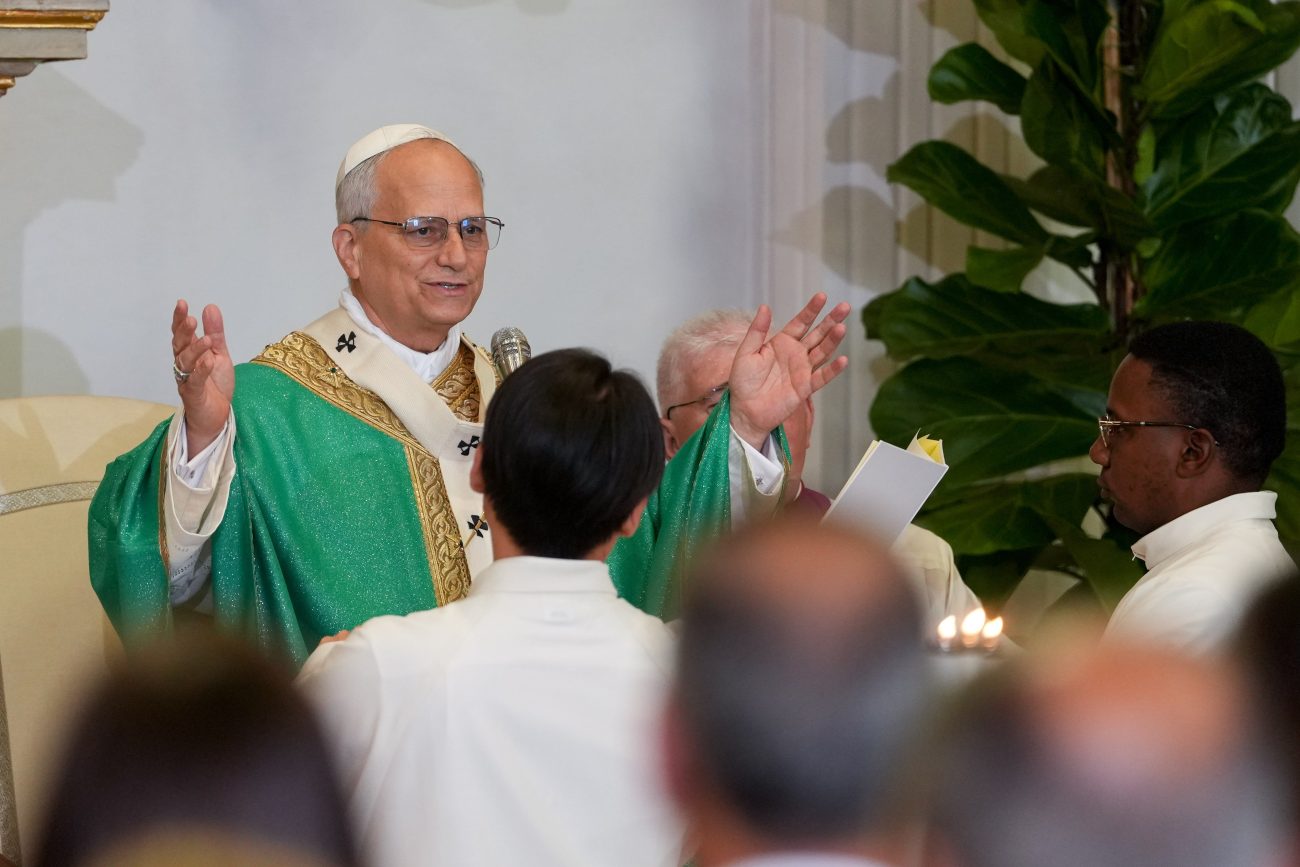VATICAN CITY (CNS) — To believe in and follow a loving and compassionate Christ is to allow him to enter one’s heart and take on his same feelings, Pope Leo XIV said.
“It means learning to have a heart that is moved, eyes that see and do not look away, hands that help others and soothe their wounds, shoulders that bear the burden of those in need,” he said in his homily, celebrating a morning Mass July 13.
The pope celebrated the Mass in the small Church of St. Thomas of Villanova, just across the main square from the papal villa in Castel Gandolfo. The pope arrived in the hilltop town south of Rome July 6 for a brief vacation until July 20.
In his Mass homily, the pope focused on the day’s Gospel reading of the parable of the Good Samaritan.
“That parable constantly challenges us to think about our own lives,” Pope Leo said. “It troubles our dormant or distracted consciences, and warns us about the risk of a complacent faith that is satisfied with the outward observance of the law but incapable of feeling and acting with the same merciful compassion as God.”
“The parable is really about compassion,” he said. It teaches that “how we look at others is what counts, because it shows what is in our hearts. We can look and walk by, or we can look and be moved with compassion.”
“The parable speaks to us first about God’s way of seeing us, so that we, in turn, can learn how to see situations and people with his eyes, so full of love and compassion,” the pope said. In fact, the Good Samaritan is really a figure of Jesus, the son of God, who “regarded humanity with compassion and did not walk by.”
This parable is so challenging for every Christian, he said, because “if Christ shows us the face of a compassionate God, then to believe in him and to be his disciples means allowing ourselves to be changed and to take on his same feelings.”
“Once we are healed and loved by Christ, we too can become witnesses of his love and compassion in our world,” which needs “this revolution of love,” he said.
The Good Samaritan encountered the wounded man who had been walking down the road from Jerusalem to Jericho, Pope Leo said.
Today, that road is “traveled by all those who descend into sin, suffering and poverty,” he said. It is traveled by “all those weighed down by troubles or hurt by life,” those who “lose their bearings and hit rock bottom.”
The road today is “traveled by all those people that are stripped, robbed and pillaged, victims of tyrannical political systems, of an economy that forces them into poverty, and of wars that kill their dreams and their very lives,” he said.
“What do we do? Do we look and walk by, or do we open our hearts to others, like the Samaritan? Are we content at times merely to do our duty, or to regard as our neighbor only those who are part of our group, who think like us, who share our same nationality or religion?” he asked.
“Jesus overturns this way of thinking by presenting us with a Samaritan, a foreigner or heretic, who acts as a neighbor to that wounded man. And he asks us to do the same,” Pope Leo said.
“Looking without walking by, halting the frantic pace of our lives, allowing the lives of others, whoever they may be, with their needs and troubles, to touch our heart,” he said, is “what makes us neighbors to one another, what generates true fraternity and breaks down walls and barriers.”
“In the end, love prevails and proves more powerful than evil and death,” the pope said.
After the Mass, Pope Leo greeted many of the parishioners, priests and religious inside the church. He then walked the short distance from the parish to the papal villa along a route cordoned off by metal barricades, waving and greeting the thousands gathered in the square.
PREVIOUS: Parishes Need to Launch ‘Revolution of Care’ for the Elderly, Pope Says
NEXT: Stop the Hatred; Humanity is at Stake, Pope Leo Says in Video Message




Share this story